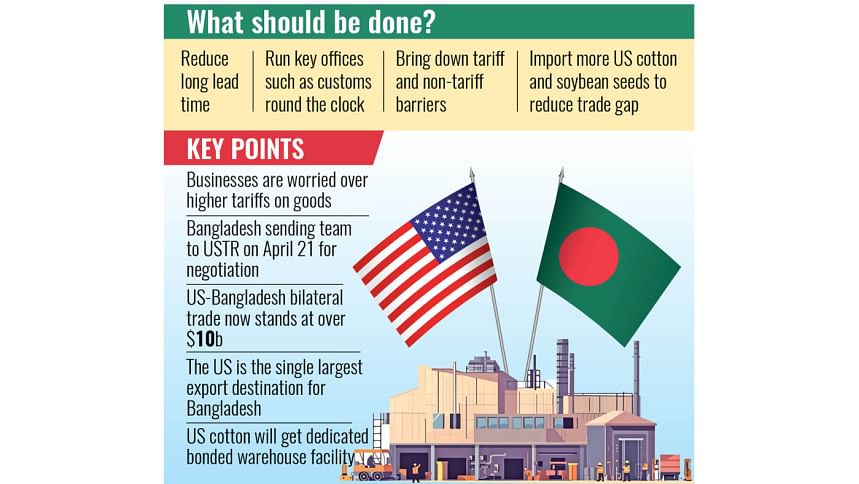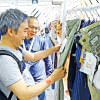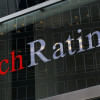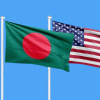Go all out to remove trade barriers with US

Business leaders from Bangladesh and the United States have called on the government to make every effort to remove both tariff and non-tariff barriers on imports from the US to narrow the trade gap and facilitate Bangladeshi exports to the American market.
At a dialogue in Dhaka yesterday, organised by the American Chamber of Commerce in Bangladesh (AmCham), the trade leaders also called for modernising key government services to improve efficiency and reduce delays.
For example, they recommended that customs departments at ports operate round-the-clock and that airports in Dhaka, Chattogram and Sylhet be upgraded to streamline services and shorten trade turnaround times.
To help balance trade, the dialogue also encouraged Bangladesh to increase imports of US cotton, soybean oil and soybean seeds.
Participants urged the government to continue negotiations with the US, especially given the uncertainty surrounding a 90-day pause on a 37 percent reciprocal tariff on Bangladeshi exports to the US.
The AmCham plans to compile a set of recommendations from the discussion, which will be submitted to the government and the United States Trade Representative (USTR) to help mitigate the impact of higher tariffs on bilateral trade.
The event was attended by business leaders from both nations, diplomats, senior government officials, importers, exporters and trade experts.
With higher tariffs looming, concerns remain over the future of trade between the two countries. Business representatives expressed anxiety over the lack of clarity from the US administration on what the final tariff rates might be.
Syed Nasim Manzur, president of the Leathergoods and Footwear Manufacturers & Exporters Association of Bangladesh (LFMEAB), described the US not only as a vital export destination but also as a key driver of growth, being a consumer-driven market.
He said that the National Board of Revenue (NBR) is currently reviewing tariffs on 20 low-revenue items worth around $100 million while also addressing non-tariff barriers.
Despite the tariff challenges, he remained optimistic, citing a crucial meeting with the USTR scheduled for 21 April.
Manzur said that without clear direction during the 90-day pause, coinciding with peak holiday order cycles, Bangladesh risked losing seasonal business, potentially affecting factory operations.
He proposed the formation of a weekly progress tracker, led by senior officials and supported by the private sector, to seize short-term opportunities and monitor key importables.
"A plan is needed to offset a possible 37 percent tariff, as competitors are already preparing," said the business leader.
Mohammad Belal Hossain Chowdhury, NBR Member (VAT Implementation & IT), said that a draft legislation for a Central Bonded Warehouse is underway to facilitate cotton imports from the US.
He said the upcoming legislation will expand bonded warehousing to additional sectors, supported by a trained workforce to handle unconventional cargo.
Chowdhury added that the Bangladesh Single Window bond system is now operational, and he called for closer collaboration to explore US markets and invoicing systems.
The Bangladesh Single Window (BSW) is a single online platform which is designed to streamline trade processes by enabling importers and exporters to submit documentation and data requirements for import, export, and transit of goods.
Garment exporters at the dialogue said that the average lead time for Bangladesh's readymade garments is 95 days, higher than Vietnam's 60 days and China's 32.
They argued that reducing logistics costs by just 1 percent could increase export demand by 7 percent.
While the recent 90-day pause on Trump's tariffs brought temporary relief, exporters said the authorities need to act fast.
At present, Bangladesh imports around 18 lakh bales of cotton from China, compared to only 4 lakh bales from the US. A shift towards US cotton, they said, could affect RMG export pricing and would require careful cost assessment.
AmCham President Syed Ershad Ahmed described the US as Bangladesh's top export destination and a major investor, bringing capital, technology and expertise to sectors such as insurance, hospitality and information technology.
Reflecting on more than 50 years of bilateral relations, he called for reciprocal tariff adjustments and a formal bilateral agreement to address trade barriers.
Ahmed acknowledged efforts by the interim government to tackle both tariff and non-tariff issues but emphasised that much work lies ahead, especially on the front of economic diplomacy.
John Fay, commercial counselor of the US Embassy in Dhaka, was also present at the programme.

 For all latest news, follow The Daily Star's Google News channel.
For all latest news, follow The Daily Star's Google News channel. 








Comments